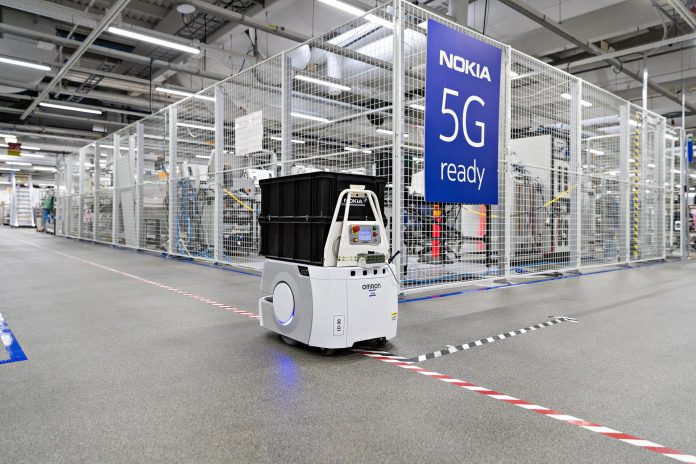Mission critical communications and broad IoT support among private network applicaitons
For several years now, Nokia has been touting 5G as the enabler of Industry 4.0 efforts to digitize industries of all sorts and using technology to increase efficiency, advance automation and drive global economic productivity. To do this, Nokia is working both through its operator partners and directly with end users in a wide range of verticals to build out private networks tailored to the particular needs of sectors like shipping, railways and aviation.
Here we’ll take a quick look at three projects wherein Nokia has worked with industrial-type partners on LTE, 5G-ready and IP/MPLS networks.
Planes: The Irish Aviation Authority engaged with Nokia to deploy an updated IP/MPLS network to support increasingly data-heavy air traffic control applications. Nokia provided design, integration, deployment and other professional services. The IAA uses the network for operations in the North Atlantic airspace region, including voice and radar services.
“Given our responsibility to ensure the smooth operation of the North Atlantic airspace, it has been crucial that Nokia earn our trust,” Billy Hann, Director of ATM Operations and Strategy for the IAA, said in a statement. “The quality and reliability of its technology and the thoroughness and collaborative approach of its teams has been first class throughout the entire migration process. We are very pleased and confident in the performance of the new network.”
Ports: The Beglian port of Zeebrugge is using a Nokia private network and other solutions for a range of IoT applications, including connectivity to tugboats, air quality sensors, security cameras and other sensors. The investment is part of the port’s larger plans to digitize and automate operations. Autonomous vehicles, augmented reality and drones are other targeted uses of the network.
“Introduction of an advanced private wireless network will act as a beacon for our partners to develop and deliver new solutions right across the logistics value chain,” Rick Goetinck, CEO, Port of Zeebrugge, said in a statement. “Nokia, in close collaboration with local service provider Citymesh, has demonstrated outstanding 5G capabilities during platform deployment, making phase one a complete success.”
The network is now being used for connectivity with tugboats, air pollution detectors, security cameras and quay sensors. Its high-bandwidth and low-latency connectivity will also be leveraged during the upcoming construction of a new sea lock and during building and maintenance of offshore wind farms. Phase one has established increased automation in Zeebrugge’s outer port area. Phase two, due for completion in mid-2020 will focus on the inner port.
Trains: The Société du Grand Paris (SGP), the state owned industrial company responsible for the Grand Paris Express metro project, has contracted Nokia to deploy a private LTE as part of the network extension in Paris, France.
Development of the Grand Paris Express is billed by the SGP as the largest transport project in Europe. It comprises four automatic metro lines around Paris , including a ring route around the city (line 15) and lines (16, 17, and 18) connecting developing neighborhoods with the city centre, business districts, research clusters, and airports. Two lines are being extended; all existing infrastructure is being upgraded.
Engie Solutions is handling the upgrade and extension of rail infrastructure, and takes responsibility for the overall project. The upgrade work covers 200 kilometres of new lines, 68 new metro stations, and all the metro trains running on metro lines 15, 16 and 17 in the French capital. The metro service will serve 165,000 companies and transport two million commuters a day when it is finally completed in 2030.
The metro network system continues to be used in the meantime, and the private LTE component will go live as it is deployed. Private LTE project will provide “critical, high-speed wireless connectivity to meet all future operational and maintenance requirements, as well as emergency and security needs,” said Nokia.

